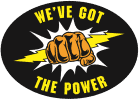Safety in the house during winter
Winter is upon us and that first cold snap always takes us by surprise. We drag out the heater and electric blankets which have been stored for the past nine months and turn them on. Some of these appliances work, some don’t. Be careful.
Essential Energy’s Regional Manager Northern, Mark Summers, reminds us that “heaters or electric blankets which had been in storage should be inspected and cleaned before use”.
According to Fire & Rescue NSW, 30% of household fire occur in winter. And many of these fires are caused by faulty appliances. Simple steps such as checking electrical appliances for loose connections, frayed cords and exposed wiring will help keep you and your family safe. The Queensland Fire and Emergency Services suggest that all electrical appliances should be regularly checked by a licensed electrician.
Winter is also a good time to check batteries in smoke and fire alarms.
Electric blankets:
All electric blankets sold in Australia must comply with strict safety standards. However, careless use can cause electric shock, fire, possibly even death. Most accidents are caused by misuse or by blankets which are worn and old and have not been checked regularly. Here are some simple rules provided by Queensland Fire and Emergency
- Always read and follow the manufacturer instructions;
- Never use an electric blanket on a water bed;
- Don’t fold for storage as it may damage your blanket, keep it on the bed during the warmer months is advised;
- Make sure your electric blanket is laid flat and tied firmly to the bed;
- Always switch it off before going to bed or leaving the house;
- Placing heavy objects on your electric blanket can damage the wiring in the blanket and could cause a fire;
- Run your hand over the blanket periodically and if you suspect overheating, turn it off and have the blanket checked by an authorised repairer.
Heaters
Many of the same rule apply to heaters.
- Choose heaters that have automatic safety switches that turn the heater off if tipped over.
- Position portable heaters away from areas of heavy traffic.
- Turn off your heater when going to bed or leaving the house.
- Keep portable electric heaters away from wet areas to avoid the possibility of electric shock.
Above all stay safe.





